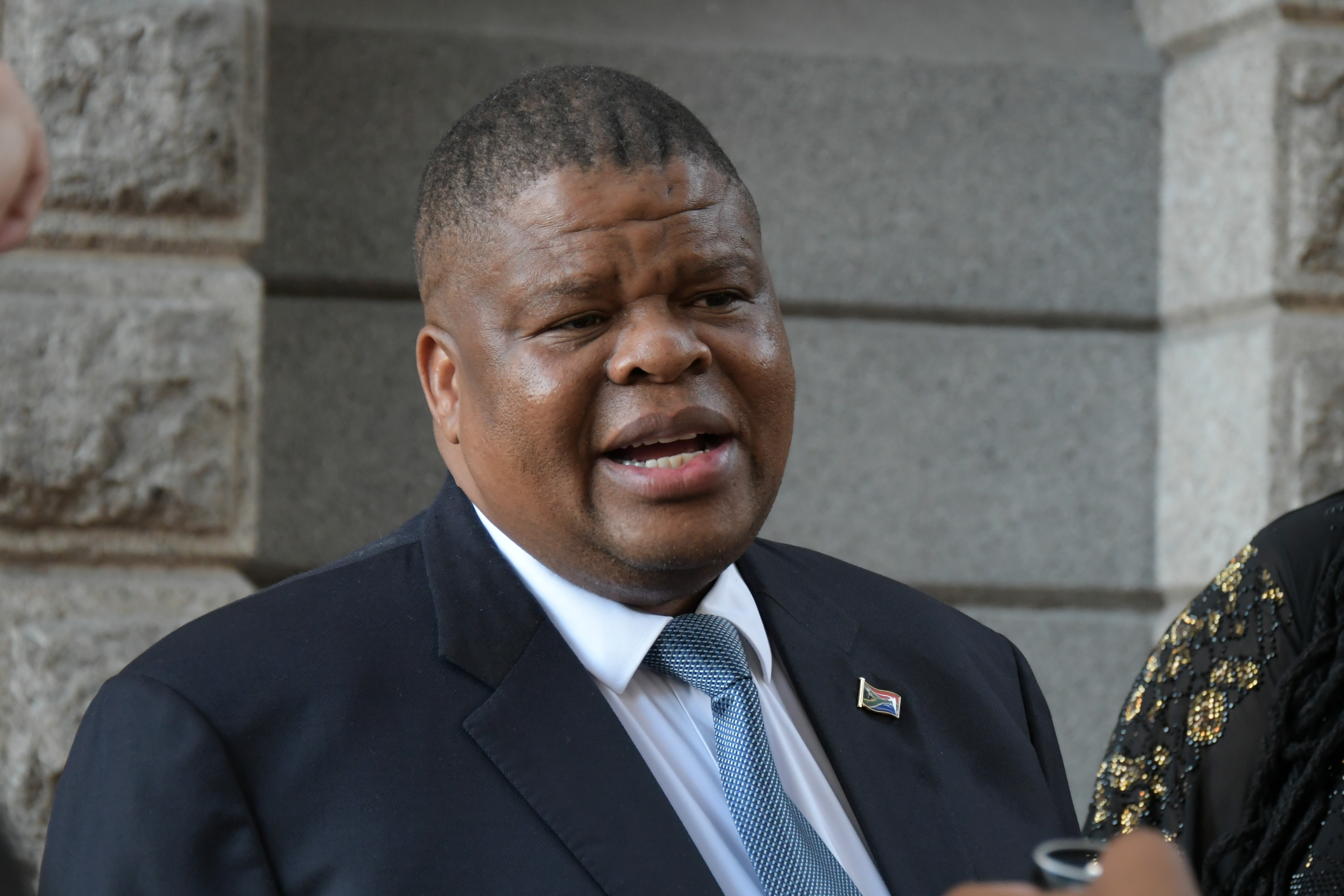
Water and Sanitation Deputy Minister David Mahlobo. Photo: Gallo Images/Jeffrey Abrahams
The death toll from the cholera outbreak in Gauteng now stands at 15, Water and Sanitation Deputy Minister David Mahlobo has confirmed.
Some residents of Hammanskraal, located in the north of Pretoria, and surrounding areas have been hospitalised in the past week after contracting the diarrhoeal disease from drinking contaminated water.
The Department of Water and Sanitation has previously blamed the poor water quality supplied to the area on the Rooiwal Wastewater Treatment Works managed by the City of Tshwane.
The Tshwane Metropolitan Municipality was taken to court by the department in the past to force the city, which has opposed the legal action, to address the pollution from Rooiwal into the Apies River and Leeukraal Dam.
According to the department, the water quality from the Temba Water Treatment work also did not meet minimum standards.
Briefing the media at the Jubilee Hospital in Hammanskraal on Monday, Mahlobo lamented the frequent change of mayors in the City of Tshwane and accused the municipality of “defaulting” on agreements that would have improved the water situation in the township.
“They change like chairs and it creates instability. As the National Department of Water and Sanitation, we know that we have intervened on several occasions and in many instances, our engagements with Tshwane [municipality] have not been productive.
ALSO READ: Diarrhoeal outbreak: Hammanskraal residents warned not to drink tap water
“We would agree with them, [table] a plan [but] they would default and the citizens, in terms of their right to have access to water, would be affected,” the deputy minister said, adding he hoped that Mayor Cilliers Brink and his MMC’s will honour the agreements.
Mahlobo confirmed that a command centre will be set up to coordinate interventions to deal with the cholera outbreak so that it does not spread to other parts of Tshwane and other provinces.
The command centre will consist of political and technical teams.
The minister said the investigation would look into the trucks that provide water tankers to residents of Hammanskraal as well as where these trucks get their water from.
Research facilities such as the Council for Scientific and Industrial Research (CSIR) would also conduct tests on the water in the area.
“The investigation must be able to say if the water truck in a condition that it doesn’t have any contaminates or foreign objects,” Mahlobo said.
Mahlobo indicated that security measures were needed because residents in some areas across the country would “throw foreign objects” into JoJo tanks carrying water to supply to the communities.
“These are some of the issues [but] we know that the Rooiwal system is the epicenter of the problem.”
He further pointed out the R2 billion refurbishment project of the Rooiwal plant was yet to be concluded.
READ MORE: Government lacking urgency to deal with sewage spills in rivers
The upgrades to the plant was anticipated to be finished by October 2022, but has since been delayed to due to the termination of the contract.
“The work that must improve the capacity of the plant, but also work on the oxidation and chlorination system has not been completed. We have learnt that the municipality is dealing with issues of procurement,” the minister added.
Mahlobo pointed out that South Africa’s water challenges was due to increased pollution.
“You could see the state of wastewater treatment works all over the country, whether these municipalities are run by the ruling party or other political parties, they are all the same. [There is] an emergence of sewage running in all townships,”
The minister, however, assured the country that tap water was safe to drink.
“The water still meets the [minimum] standards… Remember that the water must meet the blue drop status [so] you can still drink water in South Africa. But you can’t drink from any tap… when the tap is marked red then don’t drink the water.”
Health Deputy Minister Sibongiseni Dlhomo, meanwhile, confirmed that now 41 confirmed cases of cholera in Gauteng, Limpopo and Free State.
The National Institute of Communicable Diseases (NICD) declared a cholera outbreak in the country in March.
NOW READ: Water crisis more critical than SA is led to believe
Download our app and read this and other great stories on the move. Available for Android and iOS.